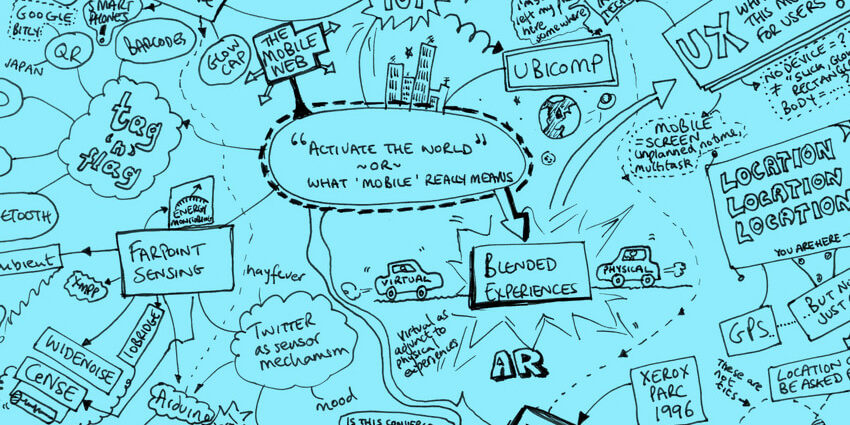The Internet of Things is the term used to describe the phenomenon of complete connectedness. It’s the concept of smart refrigerators communicating with smartphones, letting us know that we’re out of milk right as we drive by the store. It’s that same refrigerator also sending a message to our favorite dairy brand, so that we receive a mobile coupon for $1 off a gallon, in time to make that purchase.
So what does this new phenomenon have to do with app development and enterprise mobility? Everything.
Products in the IoT
Many products are already embedded with sensors that transmit information both to the manufacturer and the user about how they are being used. This data is invaluable to both parties.
Imagine the amount of actionable data that could be mined if every product was constantly sharing details about its location, its use, even its owner’s habits and preferences, with the company that produced it. From light bulbs to cars, and from washing machines to thermostats, smart products are coming faster than we think.
The time to start preparing is now. According to some predictions developed by Gartner, by 2017, people worldwide will have downloaded mobile apps 268 billion times. But this number doesn’t just include apps for smartphones and tablets. On the contrary, Gartner projects that apps for wearables and smart appliances will soon become just as important.
“In the next three to four years, apps will no longer be simply confined to smartphones and tablets, but will impact a wider set of devices, from home appliances to cars and wearable devices,” Brian Blau, a research director at Gartner, asserts.
The apps created for these appliances will do the critical work of gathering and sharing data. Much of their work will be done without human intervention. Sandy Shen, another research director at Gartner, explained this concept, called cognizant computing:
“Cognizant computing takes intelligent actions on behalf of users based on their historical data, preferences and rules. It can predict user needs and complete tasks without users initiating the action or interfering with the service. It can take the very simplistic format of completing a recurring event such as to turn on the water heater at a preset time, or the more sophisticated format of calling the rescue services and connecting with the doctor when an emergency occurs.”
While it’s a bit premature to actually begin developing mobile apps for appliances at this point, it’s a good idea to start strategizing about possibilities for your enterprise. What type of product usage information would be useful for your company to monitor? What would your app need to be able to do? How would you go about including internet connectivity and installing the apps on your products? What would you do with the data you gather? How would you use it to further your company’s overall goals?
By preparing a strategy now, your enterprise will be positioned for success when the “Internet of Things” becomes a reality.
The team at 7T takes great pride in our ability to leverage cutting-edge technologies in our mobile app development projects. In addition to mobile apps, we also specialize in custom software development, data governance and system integrations.
Based in Dallas, 7T maintains regional offices located in Houston and Chicago. We work with clients worldwide in a variety of industries, so if you’re in search of an innovative development partner, we invite you to contact the team at 7T today.









